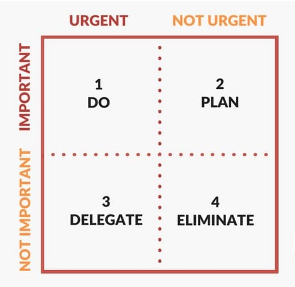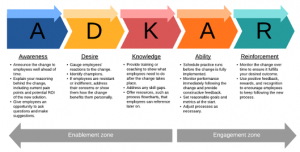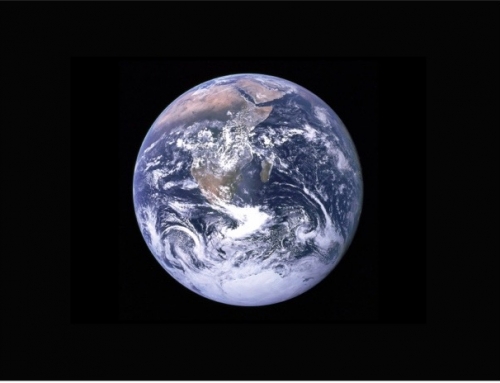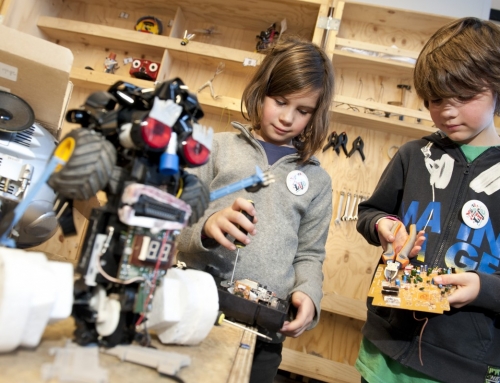As a student, I come across this and have been coming across this, my entire life: postponing, leaving things up to the last minute, evasiveness. The first time it is a presentation where I am writing my cue cards five minutes before showtime, the next time it is handing in my proposal at 11:59 pm when the deadline is at midnight. Every single time, I vow to myself that next time, it is going to be different, I say to myself: ‘Emma, you will not be cleaning your room to avoid writing your paper, your room is clean’. Next time, I will tackle the important things first. Well now, working on my graduation project, I have lost count of how many times I have cleaned my room whilst my room is clean. Why is it that us humans tend to prioritize, let’s say, in an odd manner. We use ‘first things first’ to get our priorities straight, but does that work? Why do I feel like I need to urgently clean my room when my urgency should lie with doing the ‘first things first’, which is handing in my assignment?
URGENCY
In my previous blog, I mentioned that I find it intriguing that organizations do not seem to realize that our economy cannot progress the way it does substantially longer. I believe that in order to realize a sustainable future, we should change to a circular economy. During my interviews, the organizations shared that they do not see the relevance of this change right now and the change is too big to realize. How come that they do not see that this is important and urgent? Then I realized, well maybe, me and my evasiveness behaviour is exactly the same thing. Maybe is me avoiding to write the paper exactly the same as organizations avoiding to change their way of working. Is that because I don’t want to write my paper, is that because it will cost me a lot of effort, is it because I have more important things on my mind? All this has to do with urgency, this caused me to think: ‘how does sense of urgency actually work?’
URGENCY IN THE PICTURE
Looking into the concept of urgency, I learned that urgency and importance are two different things. Urgent tasks are things that have to be done now, or else we may lose the opportunity to do so. For example, there’s a small window of time after I wake up in the morning for me to walk my dog, before he pees on the carpet. Important tasks are things that have major impacts. Like eating healthily or brushing your teeth (Kageyama, 2018). There are examples that are both important and urgent, for example breaking your leg and going to the hospital afterwards. On the one hand, there are matters that are important but not urgent, like spending time with friends and family. On the other hand, there are matters that are urgent but not important, like eating the cheese in the fridge before it gets expired. Lastly, there are matters that are not important nor urgent, like sorting your closet by colour. All these examples come together in the Eisenhower Matrix below (Eisenhower, n.d.)

What this matrix shows is the action you should take accordingly. So, for example, when you break your leg and need to go to the hospital, do that. When you want to spend time with your friends, you have to plan it. When you won’t eat the cheese in the fridge, you delegate the task of eating the cheese to for example your brother. Lastly, sorting your closet by colour, eliminate it unless you are extremely bored. This matrix helps you to prioritize. Every matter in the top left quadrant, act immediately.
SATISFACTION
So, looking at this matrix, writing my paper is important because otherwise I will fail and it is urgent because I have a deadline. Likewise, changing to a different way of doing business is urgent because our resources are rapidly running out and it is important because our world is not going to make it if we continue our methods like these. How is it then possible that we don’t DO immediately now? Well, our brains tend to prioritize immediate satisfaction over long-term rewards. A study from February 2018, found that subjects were more likely to perform smaller-but-urgent tasks that had a deadline than they were to perform more important tasks without one (Herrera, 2018). Let’s take an example, for organizations this would mean that the results for Q1 are more urgent than getting involved with changing their methods to save the world. Our running out of resources has no clear deadline, whilst the results of Q1 have a deadline: the end of Q1. Right now, organizations are occupied with ensuring that the results for the end of Q1 are good rather than ensuring that they have an alternative way to their resources when, at what point we don’t know, they run out. This is because important tasks are more difficult and further away from goal completion, urgent tasks involve more immediate and certain payoffs, so, for example, getting satisfaction because your results from Q1 are good, or people want to finish the urgent tasks first and then work on important tasks later. Even if we know a larger, less-urgent task is vastly more consequential, we will instinctively choose to do a smaller, urgent task anyway because it gives us immediate satisfaction (Herrera, 2018).
SWITCHING UP URGENCY
Well if this is a human instinct, how can we possibly change this? I think that it starts with awareness. For example, filling in an Eisenhower Matrix for your organization can be helpful but if you are not aware of the current situation regarding the earth, production methods and our economy, you are most likely to not even include this matter into your matrix. Therefore, I think it can be very valuable to work on awareness in organizations. Looking at the ADKAR model for Change Management (Hiatt, 2006), awareness is the first step to create change.

But then, how do you create awareness? Awareness is created through continuity. Reoccurring information in several ways (Schuitema, n.d.). In general, what I see is that, as Schuitema says, that this reoccurring information is already happening globally through campaigns from for example the WWF with their latest commercial: ‘Are you for the world, or against it?’ (WWF, 2020). Lately in our society, I see more and more attempts of creating this awareness for the environment and the world. As for my project, when it comes to Studio Lauda, they aim to create this awareness among brands regarding their own impacts and help turn this into a sustainable positive impact. The concept I created for Studio Lauda is based on ‘Staying Woke’ which means being conscious and aware, being very pretentious about how much you care about a social issue. I think staying woke has great overlap with creating awareness. I think it is time for the world to wake up and stay woke.
References
Herrera, T. (2018, July 11). Why Your Brain Tricks You Into Doing Less Important Tasks. Retrieved May 13, 2020, from https://www.nytimes.com/2018/07/09/smarter-living/eisenhower-box-productivity-tips.html
Hiatt, J. M. (2006). ADKAR: A Model for Change in Business, Government and our Community (1st ed.). unknown, unknown: Prosci Learning Center Publications.
Kageyama, N., PhD. (2018, July 29). The “Urgency Effect” and How to Prioritize More Effectively in the Practice Room. Retrieved May 13, 2020, from https://bulletproofmusician.com/the-urgency-effect-and-how-to-prioritize-more-effectively-in-the-practice-room/
Schuitema, D. (2019, May 8). Bewustwording, hoe creëer je dat? Retrieved May 13, 2020, from https://www.b-able.nl/blog/bewustwording-hoe-creeer-je-dat





